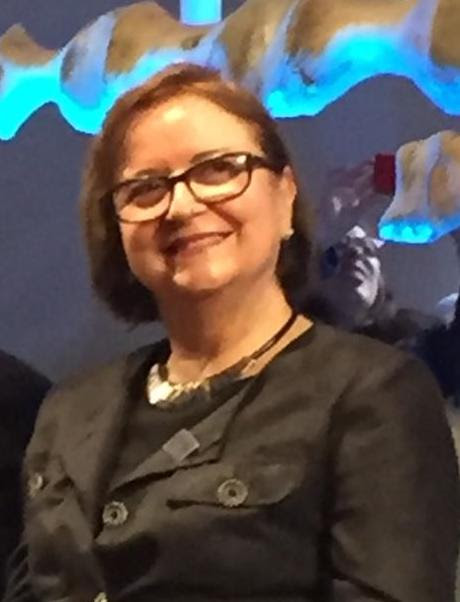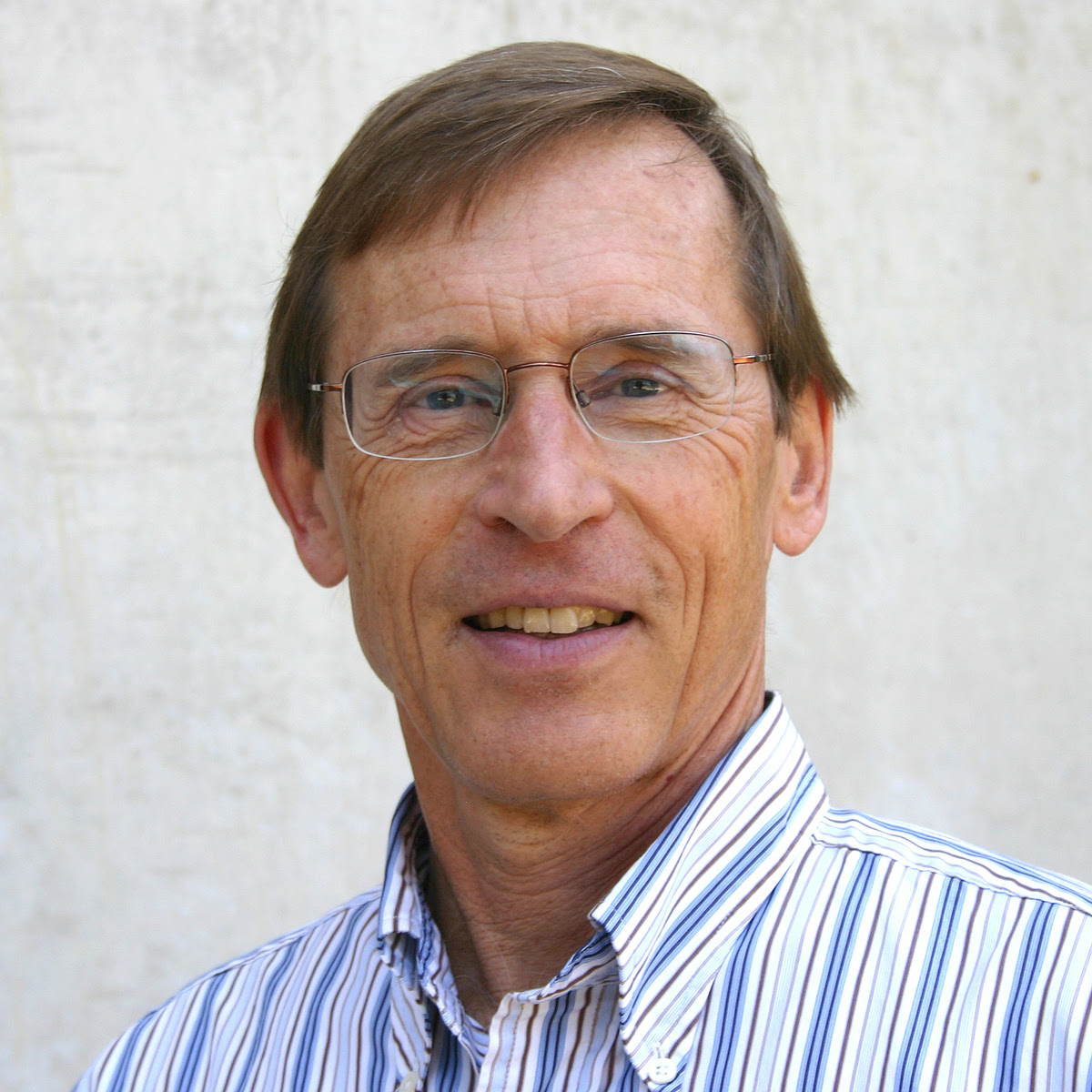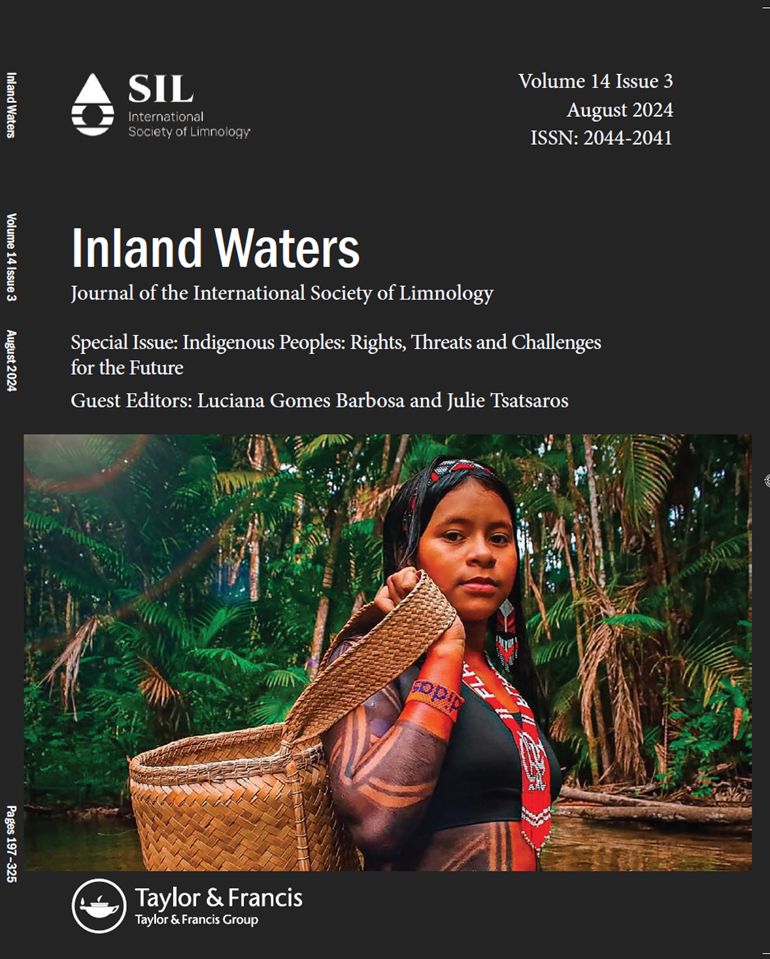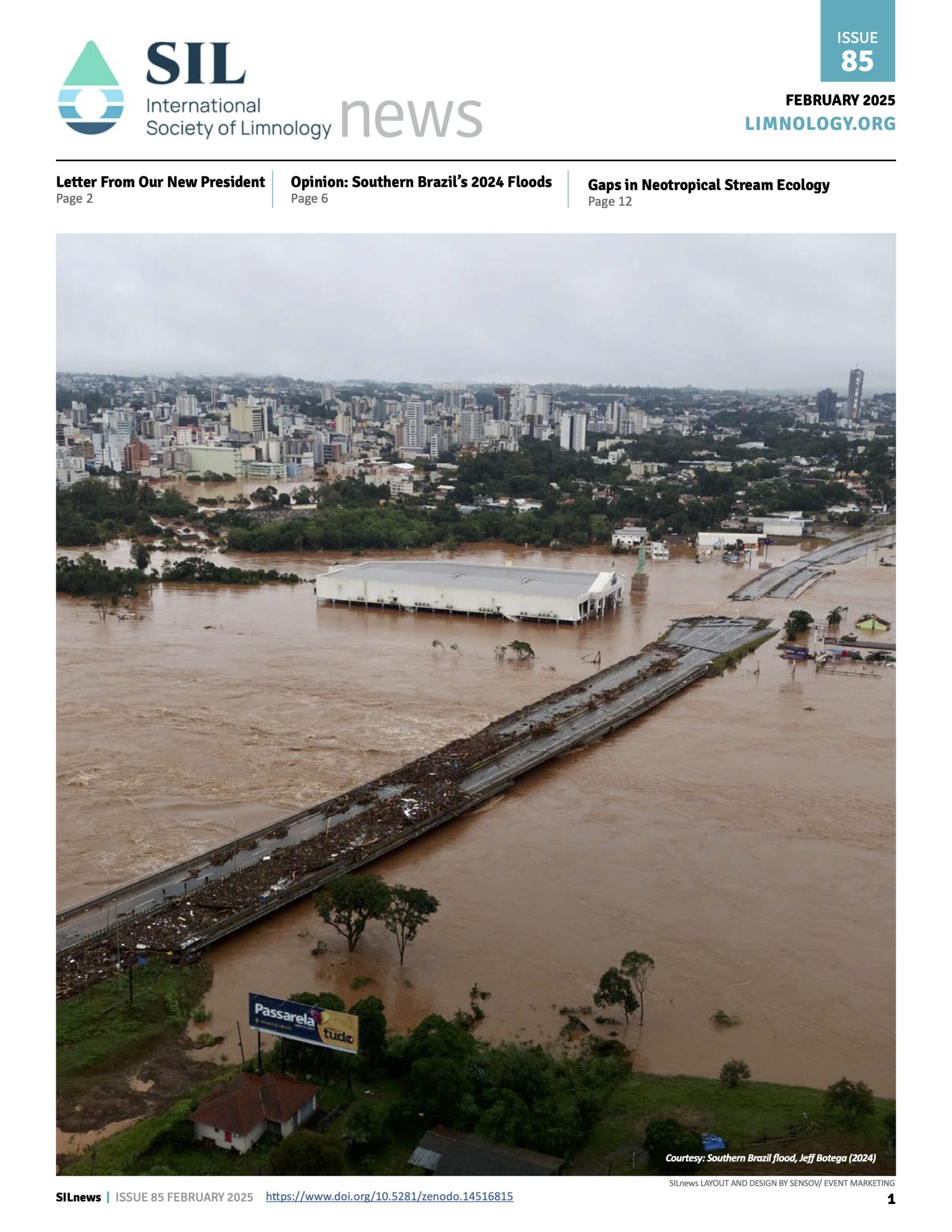2024 winners of the medal
Dr. Vera Huszar & Dr. John Melack
Dr. Vera Huszar

Dr. Vera Huszar writes a comment about receiving the award:
” It is an honour to be selected as the recipient of the Naumann-Thienemann Medal for the International Society of Limnology (SIL) at the 37th Congress in Foz do Iguaçu, Brazil, in May 2024. I am a professor (full) at the Federal University of Rio de Janeiro, Brazil, where I started my professional career 44 years ago. My supervisors were central to my higher education: Dr Maria Ofelia Garcia de Emiliani (Instituto Nacional de Limnología, Argentina) introduced me to phytoplankton ecology at the very beginning of my career; Dr Carlos Bicudo (Instituto de Botânica, Brazil) gave me a solid phycological taxonomic basis in my Master; Dr Francisco Esteves (former at the Federal University of São Carlos, Brazil) provided the fantastic opportunity to develop my PhD in Amazonia; and Nina Caraco (Institute of Ecosystem Studies, NY, USA) opened my mind to face the challenge in the Biogeochemistry/Aquatic Ecology interface.
My research area has been in planktonic aquatic ecology, mainly in phytoplankton ecology, plankton interactions, macroecology, functional diversity, carbon balance, recovery of aquatic systems, mitigation of cyanobacteria blooms, covering coastal lagoons, floodplain lakes, estuaries, reservoirs, fish farming systems, and rivers in tropical and subtropical areas, and, in less extension, temperate regions.
One of my significant contributions to phytoplankton ecology science is the contribution to consolidating the functional groups approach under Dr Colin Reynold’s leadership. Collaborating with colleagues in Brazil and many other countries (Argentina, Uruguay, Peru, Colombia, The Netherlands, Denmark, Spain, and the United States) brought new scientific insights to my research area.
One of the most relevant and worthy milestones in my career – unfortunately not fulfilled – was the dream of helping in the development of Limnology in Africa. Miquel Lürling from Wageningen University, and I, as SIL Executive Vice President from Developing Countries, could not get enough money to invest in diminishing humanity’s eternal debt to the African continent. We designed, articulated, and devoted much energy and time to organising this Limnology course – a scientifically transversal course on the reality of African Limnology based on the training of multiplying agents – scientists and students from Africa. In contrast, I am proud of my contribution to undergraduate, MSc, PhD and post-doc students. They have been my significant legacy over my entire career. “
Dr. John Melack

Dr. John Melack’s contributions to limnology range from comparative studies of tropical African lakes and high-elevations lakes in the Sierra Nevada, linking ecological and hydrological processes on Amazon floodplains, long-term measurements and analyses of saline Mono Lake and in coastal California catchments, to applications of innovative remote sensing to inland waters.
A recent book on lakes and watersheds in the Sierra Nevada integrates atmospheric deposition, catchment hydrology and biogeochemistry with variability of climate. Melack and his students have quantified the complex hydrology, nutrient dynamics and carbon fluxes within Amazon floodplains, an immense aquatic system with large methane emissions. He represented the science of inland waters in the formulation of NASA’s Earth Observing System, and made seminal applications of synthetic aperture radar, passive microwave and hyperspectral imagery, to studies of inland waters. Over the years, these studies engaged numerous undergraduate and graduate students, postdocs and collaborators, resulting in many friendships.
Dr. Melack’s association with SIL began in 1979 at SIL’s Workshop on African Limnology in Nairobi, Kenya, continued as Kilham lecturer in Melbourne, Australia, and plenary speaker in São Paulo, Brazil. He has long served as an associate editor for Biogeochemistry, Hydrobiologia and Limnology and Oceanography. Melack led the establishment and development of the Bren School of Environmental Science and Management, which trains students to be professional environmental scientists. He is a fellow of the American Geophysical Union.


